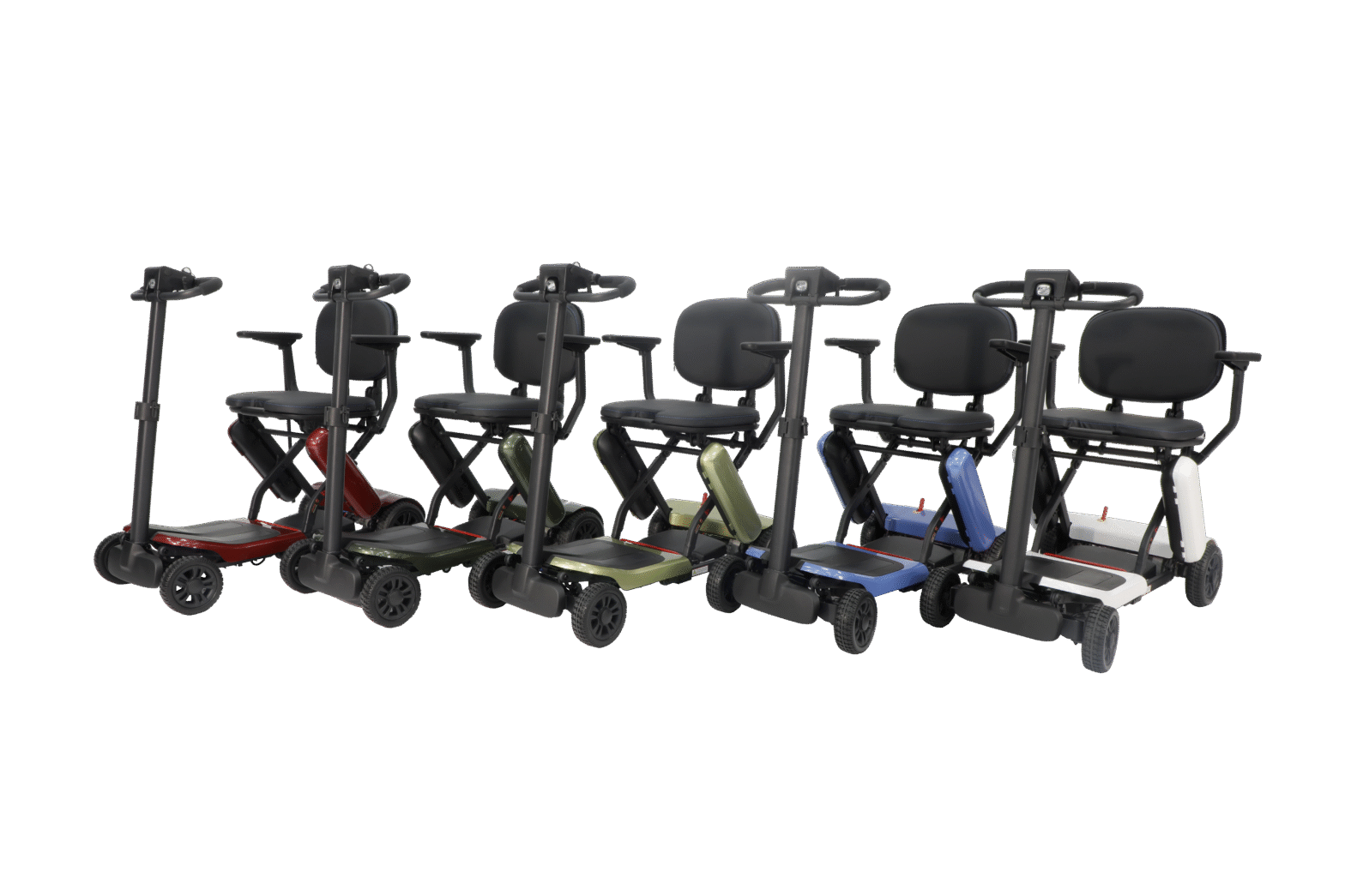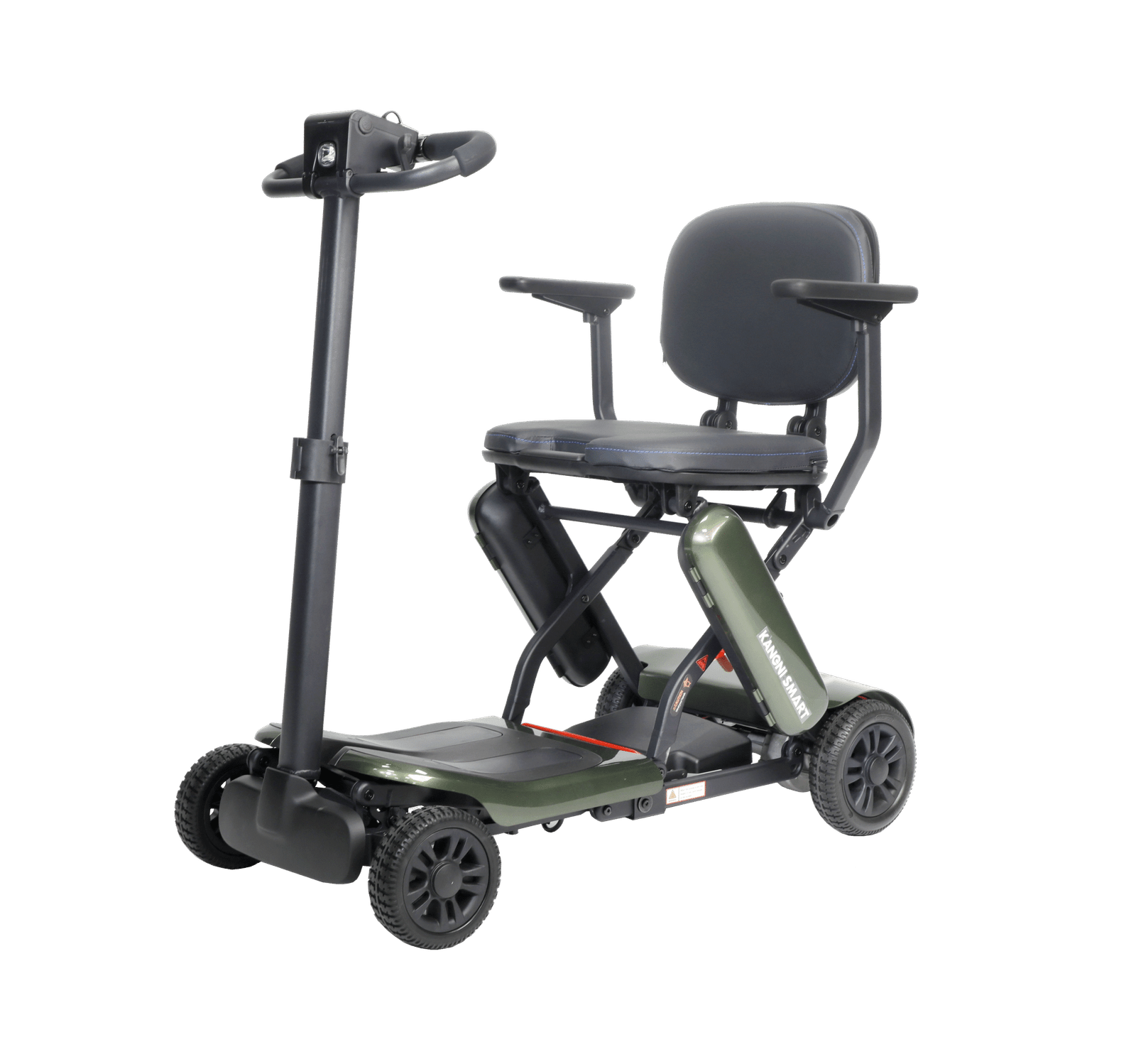
Mobility scooters have become an essential tool for many individuals, providing independence and convenience for those with mobility impairments. However, a critical question often arises: Can you drink and operate a motorized electric scooter? While these devices are not traditional motor vehicles, they are subject to legal regulations in many regions—and impaired operation can have serious consequences. In this blog, we’ll explore the legal, safety, and ethical considerations surrounding alcohol use and power mobility scooter operation.

The first step in understanding the legality of drinking and driving a power mobility scooter is clarifying how these devices are classified under the law. In most countries, motorized scooters (also called “power-driven vehicles for disabled persons”) fall into a unique regulatory category:
United States: In many states, mobility scooters as “personal electric mobility devices” or “motorized wheelchairs.” They are generally permitted on sidewalks, bike paths, and some roads, but regulations vary by state. For example, California’s Vehicle Code defines them as “power wheelchairs” and grants them the same rights and responsibilities as pedestrians.
United Kingdom: Under UK law, electric mobile scooters are classified as “mobility wheelchairs electric” or “electric mobility vehicles.” They are regulated under the Road Traffic Act 1988, and operators must comply with certain rules, such as speed limits (typically 4-8 mph on pavements, 8-12 mph on roads).
Australia and Canada: Similar frameworks exist, with mobility scooters often treated as assistive devices rather than motor vehicles. However, they must still adhere to road safety laws.
Key Point: While mobility scooters are not typically subject to the same licensing or registration requirements as cars, they are not exempt from laws against impaired operation.
In many jurisdictions, operating a mobility scooter under the influence of alcohol (or drugs) can lead to legal repercussions. Here’s what you need to know:
A.Drunk Driving Laws and Mobility Scooters
Implied Application of DUI/DWI Laws: In some regions, laws against driving under the influence (DUI/DWI) can be applied to mobility scooters if the device is considered a “vehicle” under local legislation. For example:
In the UK, the Road Traffic Act allows police to charge mobility scooter operators with “drunk in charge of a vehicle” if they are impaired and on a public road or space. Penalties can include fines, confiscation of the scooter, or even imprisonment in severe cases.
In the U.S., states like Texas and New York have prosecuted mobility scooter users for DUI after accidents involving alcohol, arguing that the devices qualify as “motor vehicles” under their laws.
Public Disorder or Negligence: Even if a jurisdiction does not explicitly apply DUI laws to powered mobility scooters, impaired operation can lead to charges like “public intoxication,” “reckless endangerment,” or “negligence” if it endangers others.
B.Jurisdictional Variations
Laws vary widely, so it’s crucial to check local regulations:
Scandinavia: Countries like Sweden and Denmark treat mobility scooters strictly, with penalties for impaired operation mirroring those for cars.
Germany: Mobility scooter operators must adhere to road traffic laws, and impairment can result in fines or liability for accidents.
India: Under the Motor Vehicles Act, electric motorized scooters may be regulated as “invalid carriages,” and drunk operation could lead to penalties under general public nuisance laws.
Tip: If you’re unsure about the laws in your area, consult your local transportation authority or legal counsel.
Beyond legal consequences, impaired operation of a mobility scooter poses significant risks to the operator and others:
Reduced Reaction Time: Alcohol impairs reflexes, making it harder to avoid obstacles, pedestrians, or vehicles.
Vision and Coordination Issues: Even low levels of alcohol can affect balance and depth perception, increasing the risk of falls or collisions.
Environmental Awareness: Mobility scooters often operate in crowded areas (sidewalks, shopping centers, etc.). Impaired operation can lead to accidents involving pedestrians, cyclists, or motor vehicles.
Device Limitations: Mobility scooters not equipped with safety features like airbags or seatbelts, making operators more vulnerable in collisions.
Case Study: In 2022, a UK study found that hospital admissions for mobility scooter-related accidents increased by 30% in five years, with alcohol contributing to a significant number of incidents. Many involved collisions with fixed objects or other pedestrians.
Using a scooter electric mobility is a privilege that comes with responsibility. Impaired operation not only endangers lives but also stigmatizes the broader community of mobility device users. Here’s how to act responsibly:
Designate a Helper: If you plan to drink, arrange for someone to assist you or use alternative transportation (e.g., accessible taxis).
Know Your Limits: Even one alcoholic beverage can affect your ability to operate a mobility scooter safely. Always prioritize sobriety when using the device.
Advocate for Awareness: Support efforts to educate others about the risks of impaired mobility scooter operation, such as community workshops or public campaigns.
5.Alternatives to Impaired Operation
If you need to travel after consuming alcohol, consider these options:
Personal Assistants: Many individuals with mobility impairments rely on caregivers or companions who can operate the scooter safely.
Public Transportation: Buses, trains, and taxis with accessibility features can provide a safe ride.
Ride-Sharing Services: Companies like Uber and Lyft offer accessible vehicles in many areas.
In short, the question of whether you can drink and drive mobility scooter has a clear answer: Legally and ethically, it is never acceptable. While laws may vary, the risks to yourself and others are undeniable. Mobility scooters offer freedom, but that freedom comes with a duty to act responsibly. By staying informed about local regulations, prioritizing sobriety, and exploring alternative transportation options, you can ensure your safety and maintain the trust of your community.
Remember: The goal is to enjoy the independence your mobility scooter provides—without putting yourself or others in harm’s way. Stay safe, stay sober, and advocate for a more inclusive and responsible approach to mobility.
Copyright@ 2026 Nanjing Kangni Smart Technology Co., Ltd. All Right Reserved.